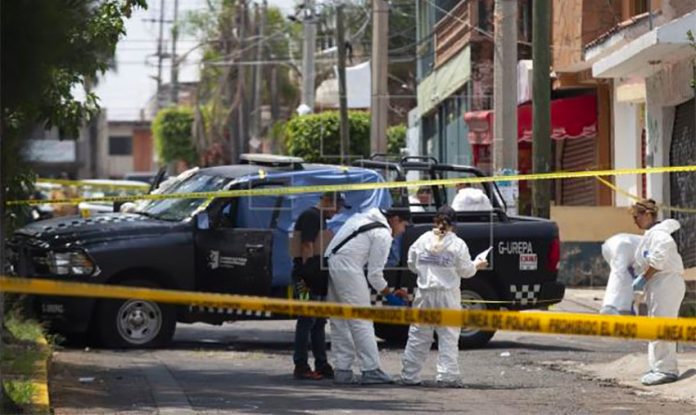Things are looking rough from a security standpoint but there are reasons to be optimistic, says an often gloomy analyst.
Violence and crime continued to plague Mexico in 2019 – the number of homicide victims increased 2.7% in the first 11 months of the year to almost 32,000 and literally millions of other crimes, both major and minor, were committed.
Impunity remains rampant – about 99% of crimes are not prosecuted – despite President López Obrador’s stated pledge to fight it, and drug cartels and other criminal groups continue to control large swathes of territory and sow terror among the population in certain parts of the country.
Despite the depressing and alarming situation (2019 will almost certainly go down as the most violent year on record), security analyst Alejandro Hope, a frequent critic of the federal government’s security strategy, outlined five reasons for “moderate optimism” with regard to security in the years ahead.
Writing in the newspaper El Universal, Hope asserted that Mexico’s demographics, the evolution of technology, the improvement in the compiling of crime statistics, greater knowledge about security and justice issues and the proliferation of organizations dedicated to the analysis of public policy and security will help reduce criminality.
Below is a summary of his five reasons for being upbeat about the prospects for Mexico.
1. Mexico’s population is rapidly aging, Hope notes, explaining that means that the size of the cohort most likely to commit crimes (males aged 15 to 29) will shrink in relative terms in the near future and in absolute terms in decades to come.
“Multiple scientific studies have found that a reduction in the size of the young male population is associated with a decrease in the crime rate,” he wrote.
The analyst conceded that the effect of the decline on levels of criminality won’t be “very strong” but contended that demographics will “eventually” help to bring about an improvement in Mexico’s security situation.
2. Similarly, the evolution of technology could have a “pacifying effect” in the long term, Hope wrote, arguing that it could make committing some crimes more difficult. He noted that the car theft rate has declined 40% since 2009, asserting that the reduction was in part due to the greater use of technology such as alarms and GPS.
“Something similar could happen with home burglary and cell phone theft [rates],” Hope wrote.
He also said that technology could transform some other crimes by facilitating access to illicit goods and substances. A person in the United States can already buy fentanyl on the dark web from a producer in China, pay for it with cryptocurrency and receive the drug via courier, Hope wrote.
Any increase in such a practice will “reduce the need to have violent distribution networks,” he concluded.
3. Mexico has better crime data today than 10 years ago, Hope wrote, highlighting that both the national statistics agency Inegi and the National Public Security System have improved the quality of the information they compile.
“The country has much better information to begin to make [security] policy based on evidence.”
4. The knowledge base about security and justice issues in Mexico has grown exponentially since the start of the century, Hope wrote, pointing out that there is now a greater number of security experts and that an “impressive cohort” of young people with an interest in the area is studying in the world’s best universities.
“The public debate about the issue will improve enormously in the coming years.”
5. The number of organizations dedicated to the study of security and justice issues has also increased rapidly in recent years, the analyst said, noting that there are both national and state-based organizations and groups that represent victims of crime.
Their existence is “starting to close the main gap in the security and justice system: accountability,” he wrote.
“In summary,” Hope concluded, “the present is horrible but the future could be very different.”
Source: El Universal (sp)
